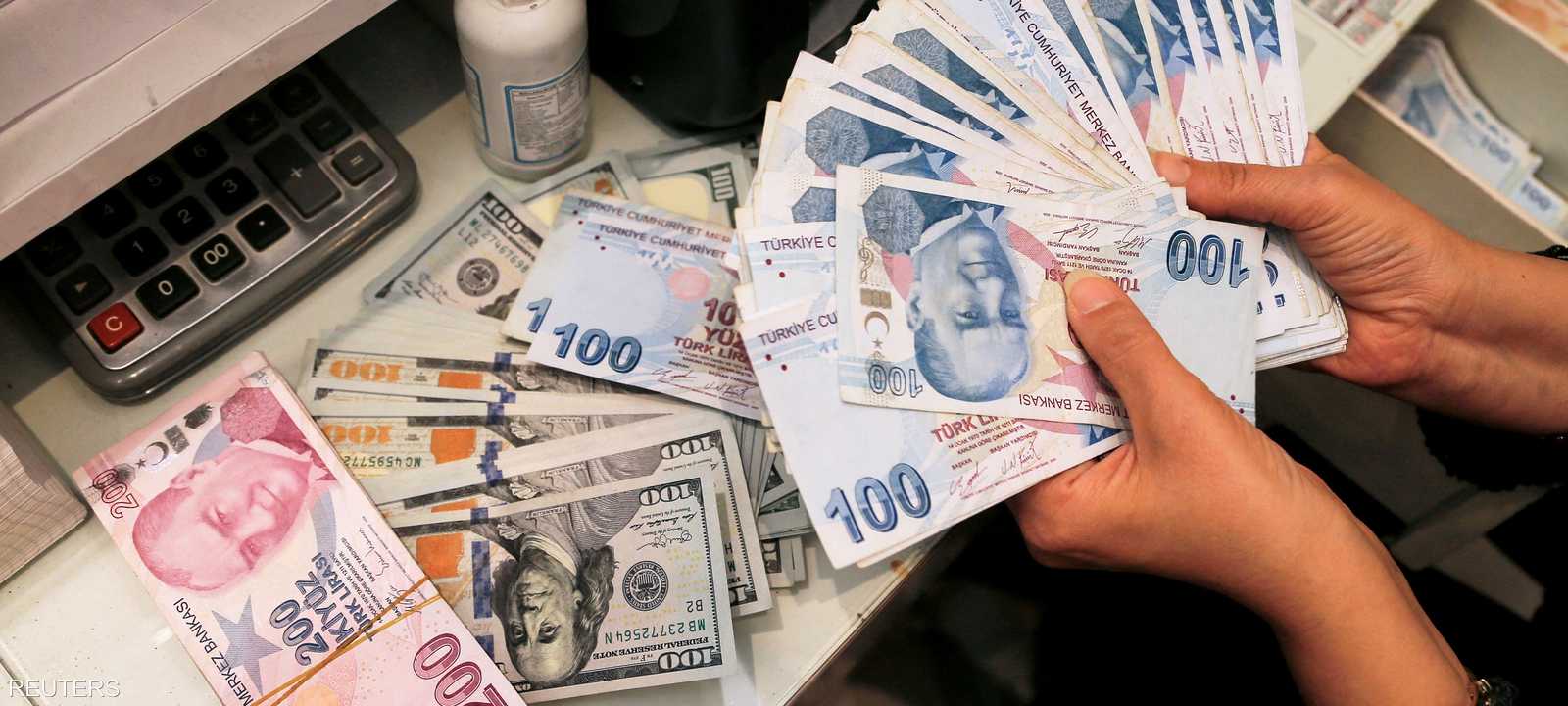
Turkish lira
The decision negatively affected the lira’s exchange rate, despite President Recep Tayyip Erdogan’s policy of lowering interest rates for years, despite the Turkish central bank announcing a hike in interest rates to 15 percent.
The lira continued to fall to record lows, reflecting displeasure at higher-than-expected interest rate hikes.
The lira hit a record low of 25.59, and the rate of decline against the US currency this year was roughly 27 percent.
Why retreat?
Ata Yatrim’s Deputy Director General for Research Cemal Demirtas explains what is happening:
- Market expectations were for interest rates to rise to 20 percent, and the central bank limited increases and raised the policy rate to 15 percent, the start of a monetary tightening process, and the effectiveness of monetary policy was confirmed. officer.
- Recent indications indicate that the underlying trend of inflation is rising, and we believe that interest rate hikes may continue in the coming period. Developments in the global economy and the Turkish economy will be decisive in the rate of interest rate hikes..
- In the period ahead, monetary policies, fiscal policies and the path of the new economy will be decisive in determining the direction of the markets, and the value of the lira is likely to continue to decline in the period ahead.“.
“disappointment”
Economist Mugils Al-Nasser says, “The interest rate decision announced by the Central Bank of Turkey did not live up to analysts’ expectations and created disappointment.”
Al-Nasser expects the job of Turkey’s central bank chief Hafiza Jaya Ergan, who took office this month, will find it difficult to rebuild confidence, especially since the markets’ reaction has been so severe.
Foreign investors will be wary in the coming period, and the exchange rate reaching currency appreciation limits so quickly indicates significant inflationary pressures ahead, the economist says.
Gradual change
Bond research expert Sihun Yawas believes the 20 percent rate hike has not met market expectations.
Yavas describes what is happening, “Rather than a direct change in raising interest rates, the initiation of a transition process is gradually accepted, and it will simplify and improve the current micro- and macro-prudential framework, on the other hand, we believe. The simplification will be gradual.”
This is with the expectation of increased volatility in foreign currencies and gold prices, he sees, explaining: “If there is a rebound, we think there is more opportunity for buying due to the central bank’s reserve structure. Foreign currencies and gold prices are increasing due to interest rate intensity, and due to the currency’s fair value markets. We hope to be accepted. Gold.”
Change in route
The Turkish central bank raised the key interest rate by 650 basis points to 15 percent on Thursday. He said so at the first meeting of Hafiza Jaya Arkan, its new leader appointed by Erdogan after winning the election. to go further.
The move marks a turnaround after years of demonetisation, an unconventional policy pursued despite high inflation.
The median forecast in a Reuters poll was for a rate hike of 21 percent, and a smaller-than-expected hike by analysts, indicating that the bank’s chief may not have much leeway to tackle inflation more forcefully under Erdogan’s watch.

“Award-winning beer geek. Extreme coffeeaholic. Introvert. Avid travel specialist. Hipster-friendly communicator.”
